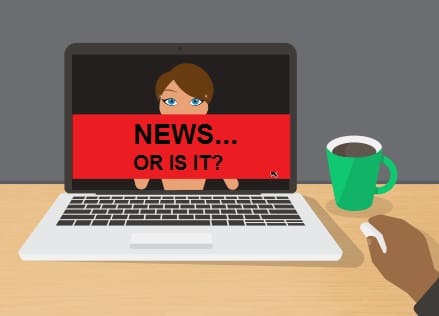Although its use became even more perceptible than it was before when the COVID-19 pandemic hit the world and shifted almost everything online, the Internet, the main medium used all over the world to gather information has always been a limitless depository regarding any and every field, subject, topic or interest. People from all walks of life continue to use it for work, research, study, and staying updated with current events locally and globally.
However, despite the convenience and simplicity of having such an array of information at our fingertips, not all of it is reliable. With it comes malpractices that are deliberately aimed to defame, bully, cause confusion and division among people, or even to simply generate traffic to a website or social media account. This is known as misinformation online.
Misinformation online comprises of different types of content, including:
1: Forged Content (Fake News); that which is fabricated and lacks actual facts, but is presented in the same formats as legitimate media houses or other sources of information online.
2: Exploited Content; that which has been edited or altered to provoke a desired outcome, such as fear or hate, from consumers.
3: Fraudulent Content (Scams); that which is created and used to commit fraud by conning consumers for financial gain.
4: Deceptive Content (Click-bait); that which misleads by containing different content in relation to how it’s presented to consumers.
5: Incorrect Content; that which contains inaccurate facts, data and other information about a certain topic or subject.
No matter the form, misinformation online brings disruptive impact on individuals and the society as a whole. In cases such as cyber-bullying, people (mainly the youth) are subjected to negative, mean and harmful content from other individuals. From degrading comments such as, “Ugly” and “Disgusting” posted on people’s pictures on Instagram, to hateful videos intentionally made to attack and defame them, said content has led to lowered self-esteem, self-hate, and even increased numbers of suicide cases among them. What’s even more sad, is that many such cases are not shared, reported, or even noticed until it’s too late.
On the other hand, awareness has massively increased, thanks to the Cyber-Security Awareness Month that is globally recognized and dedicated to fighting misinformation and other online crimes. Protocols have been put in place by websites, social media and other online apps to protect consumers. People are able to report the various forms of malpractice they witness to the hosting platforms, and measures have been put in place against these acts, such as blocking or suspending the perpetrators, or even banning them.
Even though we might not be able to fully get rid of such ill intentions and practices, we each have a role to play against them. Let’s do as much as we can to fight misinformation online.
https://www.newtimes.co.rw/opinions/fighting-misinformation-online
By Tony Neate & Maurice Kajangwe
Published : November 21, 2021


